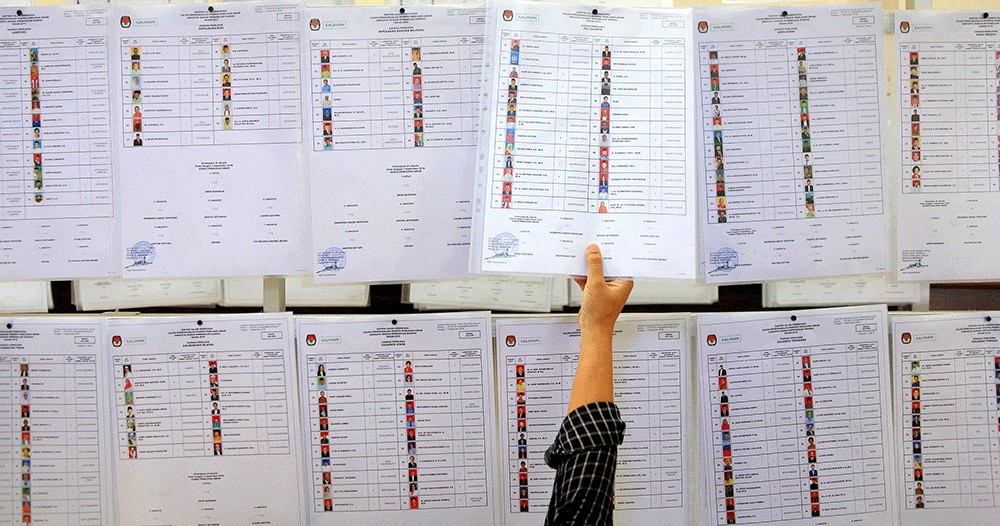Popular Reads
Top Results
Can't find what you're looking for?
View all search resultsPopular Reads
Top Results
Can't find what you're looking for?
View all search resultsMany Indonesians fed up with political dynasties: 'Kompas' survey
Nearly 61 percent of the total 553 respondents of a Kompas poll have said they do not like the idea of family members of political leaders running for top regional positions.
Change text size
Gift Premium Articles
to Anyone
M
any Indonesians are fed up with Indonesia's thriving political dynasties, a recent survey by the Research and Development Department of Kompas daily has revealed.
Nearly 61 percent of the total 553 polled respondents said they did not like the idea of family members of political leaders running for regional head posts.
Around 28 percent of them regarded political dynasties as normal practice and part of the democratic process in Indonesia, the world's third-largest democracy.
The remaining 11 percent said they did not know what political dynasties really meant, according to the survey results cited by kompas.com.
The survey, conducted via phone interviews from July 27 to July 29, further revealed that 58 percent of the participants wanted a regulation to limit or altogether bar family members of public officials from running in regional elections.
Around 35.8 percent of them did not agree with such regulation, while 6.2 percent chose to abstain.
Attempts to limit the growth of political dynasties have occurred in the past. In 2015, for instance, the House of Representatives passed the Regional Elections Law, which barred family members of an incumbent from running for a regional head post.
Read also: Gibran, exception to PDI-P’s own rules
However, the law was later overturned by the Constitutional Court, which argued that equal opportunity needed to be preserved for all.
Public discourse over political dynasties has intensified recently after a number of highly connected candidates announced their decisions to join the upcoming 2020 simultaneous regional elections.
President Joko "Jokowi" Widodo's son Gibran Rakabuming Raka and son-in-law Bobby Nasution, for instance, are running for the seats of Surakarta mayor and Medan mayor, respectively, while the fourth daughter of Vice President Ma'ruf Amin, Siti Nur Azizah, is joining the South Tangerang mayoral race.
The candidates, however, have denied accusations that they are building political dynasties in the country.
Jakarta-based think tank Nagara Institute said recently that political dynasties had apparently proliferated in the three latest simultaneous regional elections, in 2015, 2017 and 2018. At least 80 regions, amounting to nearly 15 percent of the total number, were exposed to political dynasties during the period.
Nagara executive director Akbar Faizal said the finding was a strong indication of a problem in the political parties' recruitment systems and that oligarchies in political parties, as reflected in the strengthening of political dynasties, would adversely affect democracy.








